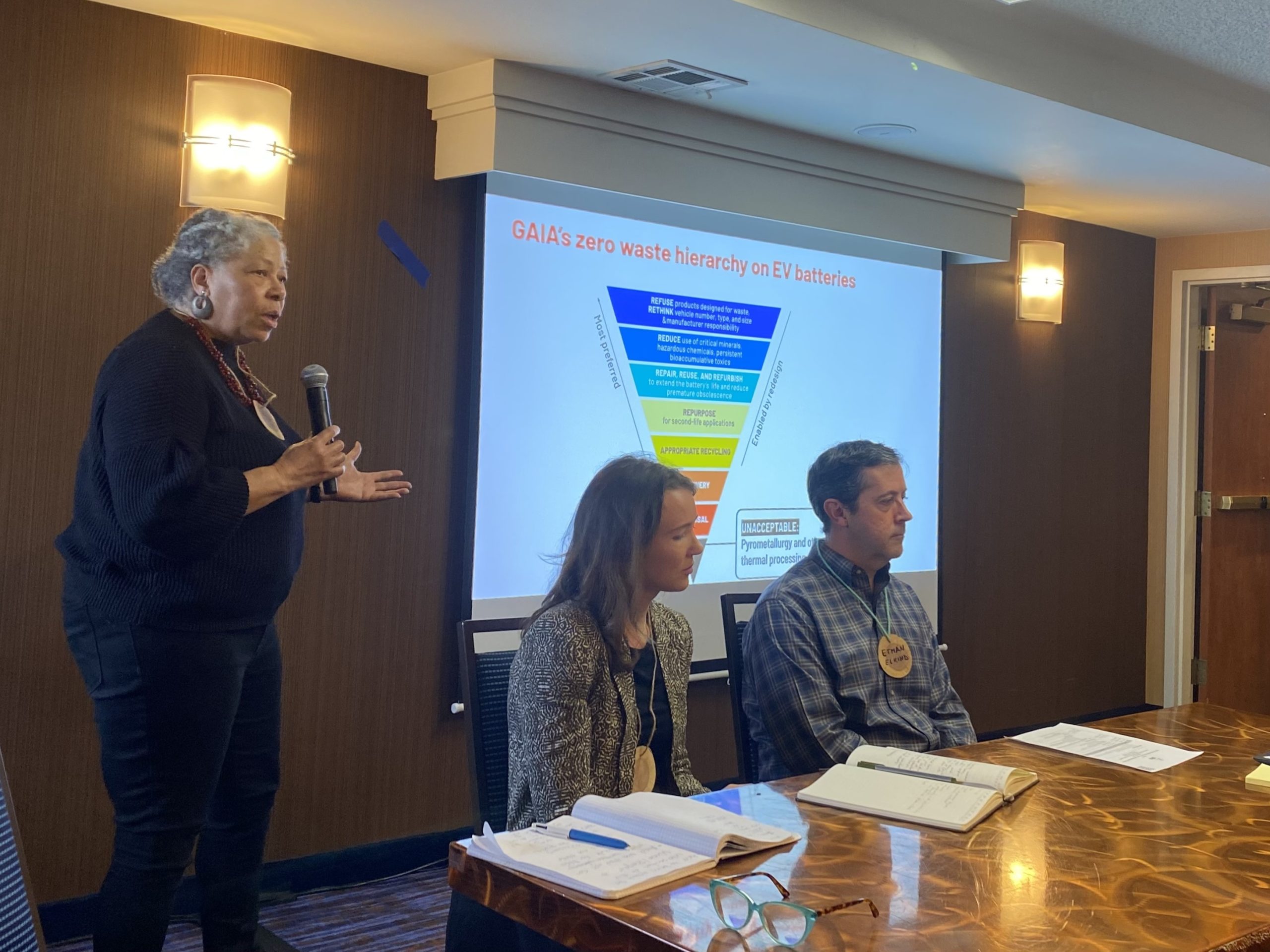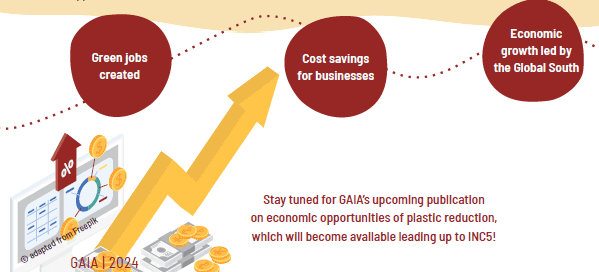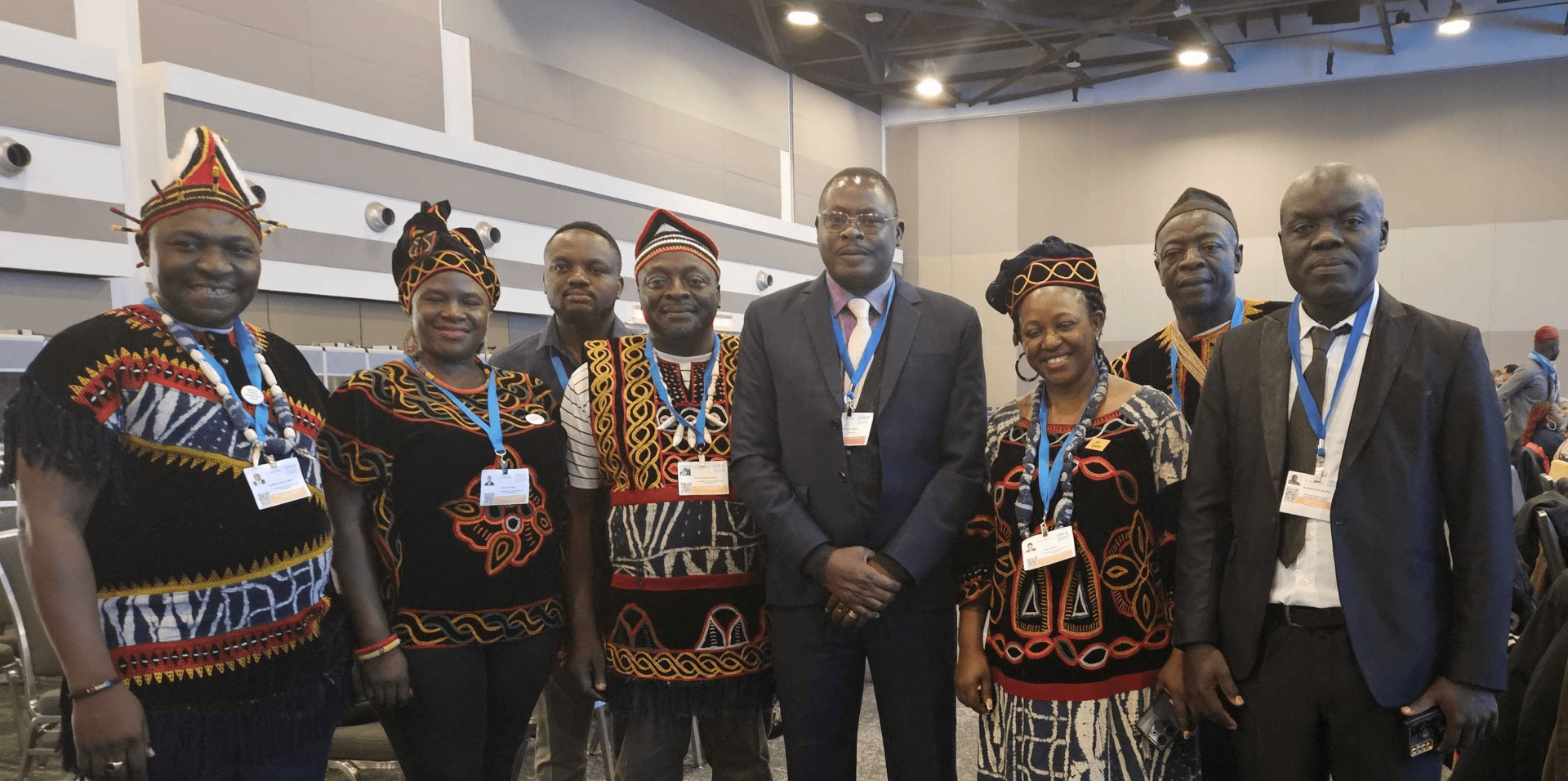INC-4 Day 5, April 27, 2024
PRESS CONFERENCE MONDAY APRIL 29, 1 PM SHAW CENTER: Global South Leaders Respond to INC-4 Negotiations
Global South leaders–including a Member State Delegate, frontline community leader, policy expert, and youth activist– will share their perspectives on the plastics treaty negotiations thus far. The stakes could not be higher–what happens in the rooms of the Shaw Center will have a direct and profound impact on our lives and the lives of our families and communities.
Click HERE for further information
Register HERE for zoom livestream
Contact Groups Get Down to Business
At long last and to the surprised delight of civil society observers, Member States finally began negotiating on text for the first time in the INC process. Previously countries had put forward proposals and expressions of support for other country proposals. These interventions informed the creation of the Zero Draft that the Chair presented for INC-3 negotiations, and then led to a bloated revised Zero Draft at INC-3. Now the Contact Group facilitators have created a streamlined Zero Draft that has trimmed down the text significantly.
As of Saturday Member States began to give input on the exact wording of the streamlined Zero Draft in both contact groups. This is a major advancement in the treaty negotiations, signaling the viability of the streamlined text as a precursor to a final treaty text. One of the most exciting parts of this new phase of treaty negotiations is that contact group 1 began negotiating text on regulation of plastic polymers. This is a decisive step forward in the battle for plastic reduction.
Organizations Create the Latin American and Caribbean Network for the reduction of plastic production with binding global targets
On Saturday, civil society organizations launched a network to advocate for the reduction of plastic production with binding global targets. Its members have participated as observers in all the negotiations of the INCs. The network believes that, at this stage of the negotiations, it is important to ensure that the voices of the Latin America and the Caribbean region are heard, as they are directly affected by the consequences of plastic production. Some of these consequences include the problems associated with the export of plastic waste to the region, deemed to be waste colonialism, and the false solutions that have affected the lives and health of communities and ecosystems in their territories.
Indigenous Peoples Decry Lack of Recognition in Negotiations
The Indigenous Peoples’ Caucus published a response to the Revised Zero Draft (attached), emphasizing several glaring problems with the existing text including not recognizing Indigenous Communities as rights holders as enshrined in the United Nations Declaration of the Rights of Indigenous Peoples– therefore giving them the right to self-determination and free, prior, and informed consent. They also pushed back against the use of the term “plastics circularity,” stating that this framing fails to address the root of the plastics problem in extraction and production– which have disproportionately impacted Indigenous communities. The Indigenous People’s Caucus has also exposed UNEP’s failure to provide them with a room in INC venues, which is mandated to Indigenous Peoples as rights holders.
Plastics and Colonialism
The same communities who have been subjected to colonialism past and present are also at the frontlines of the impacts of plastics from extraction to disposal, and this cycle of harm must finally be broken. On Saturday Society of Native Nations, the Indigenous Peoples Caucus, and allies organized a press conference to highlight this historical injustice.
Rochelle Driver, Anishinaabe – Fond du Lac Band of Lake Superior Ojibwe, and representative to the International Indian Treaty Council, stated, “How are we not all exhausted? We fight one thing after another after another, and it just seems to never end.” Rachelle Diavram.
Contact:
Claire Arkin, Global Communications Lead
claire@no-burn.org | +1 973 444 4869
References:
- Plastics and Colonialism press conference video recording
- See GAIA’s youtube channel for all interviews
For more information about GAIA’s treaty advocacy, please visit no-burn.org/unea-plastics-treaty, follow us on X @gaianoburn, and read our Press kit.




























